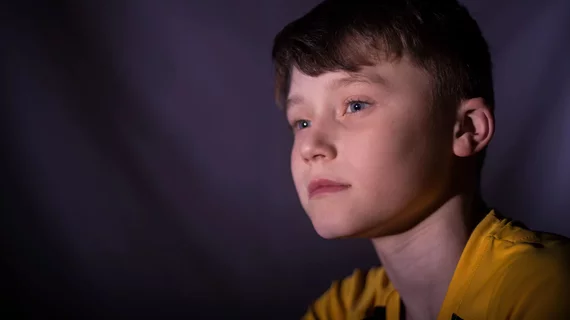Should pediatric patients be excluded from MRI research due to stress, anxiety?
Children and teenagers undergoing brain MRI scans experience little to no more claustrophobia or other form of anxiety than adults, so there’s no reason to exclude pediatric patients from MRI research on the basis of concern over stress.
Such is the conclusion of researchers in Germany who compared anxiety levels between 57 children aged 8 to 11 and 28 adults. All had brain MRI and were assessed for anxiety both subjectively and physiologically before and after scanning.
For further comparison, the team evaluated 66 youngsters before and after receiving low-stress electroencephalography (EEG) tests.
The work was published online March 7 by PLoS One in an open-access study.
Led by Charlotte Jaite, PhD, a pediatric and adolescent psychiatrist at Charité hospital in Berlin, which is affiliated with Humboldt University and Freie University, the study authors reported that more than 98 percent of the youth cohort had zero or only minimal fear during the MRI scan.
These results were similar to the anxiety assessments of the adults even though some members of the older cohort had previous MRI experience.
Additionally, there were no significant differences in anxiety levels between the young MRI subjects and their EEG peers.
Jaite and colleagues underscored that their findings were obtained not from research volunteers but neuroimaging patients.
This fact hampers comparisons across research and clinical studies, the authors wrote, but it also “lends additional validity to the findings of the present study, as one can assume that MRI scans performed for clinical purposes would generally be more likely to cause stress than those performed purely for research.”
Based on their findings, Jaite et al. concluded that a general exclusion of minors from MRI-based research—which, the authors pointed out, some experts have called for—would seem unreasonable.

